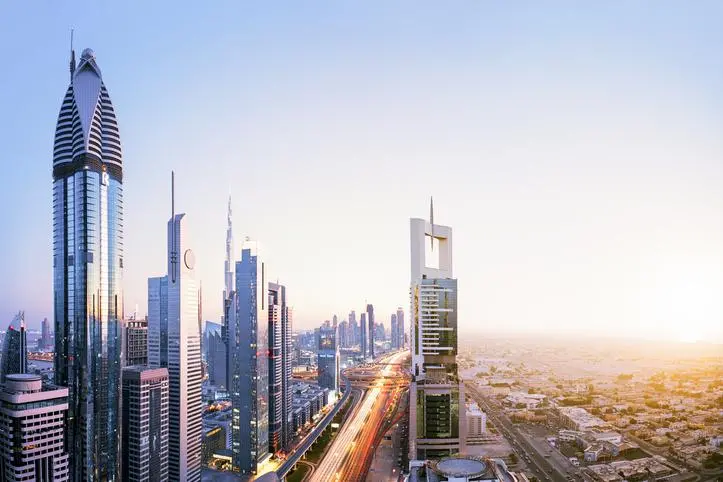PHOTO
A moderate acceleration in real non-oil GDP growth for the UAE is well on track in 2018, with stronger project activity counterbalancing the impact of the introduction of VAT on consumers and corporates, according to analysts at a leading bank.
Project awards, a leading indicator of investment activity, were strong in the UAE in the first quarter, albeit across the GCC the total value of project awards contracted, an updated version of the UAE Economic Chartbook by Abu Dhabi Commercial Bank (ADCB) said.
"Project awards were robust in first quarter 2018, though with potentially weaker multipliers into the real economy than in previous cycles. The external backdrop remains supportive, but some areas [tourist numbers] will likely not see the same growth in 2018 as in 2017," said Monica Malik, chief economist at ADCB.
Apart from signs of a build-up of momentum in Dubai project implementation, other factors underpinning the economic growth are the strong hydrocarbon awards in Abu Dhabi at end-2017 and into 2018. With higher government revenue through oil price rise and non-oil revenue boosted by VAT, small fiscal surplus is also expected to support the economy.
Oil fundamentals show further improvement with the drawdown in global inventories and strong global demand. "We have raised our Brent crude forecasts to $70.8 a barrel for 2018 and $66 for 2019," said Malik. "Strengthening global growth should support externally facing sectors, including logistics and trade."
Early this month, the International Monetary Fund said that the UAE's non-oil economy is set for a strong rebound with a projected growth of 2.8 per cent in 2018 and 3.3 per cent in 2019 after a slowdown to 1.9 per cent last year.
Jihad Azour, director of the IMF's Middle East and Central Asia Department, said Dubai would be a key driver of the resilience with its non-oil economy on track to record a 3.7 per cent growth in 2018 compared to 3.3 per cent in the previous year.
According to the ADCB update, an ongoing challenge is softer consumer spending following the introduction of VAT. Higher fuel prices are also having an impact. Rising interest rates are adding further downwards pressure to domestic demand. Another challenge is the ongoing price discounting to support demand (domestic and external) for key services - hotels, hospitality and retail. Rental yields continue to fall, impacting demand as mortgage payments increase with higher interest rates.
The bank noted in its recent project update that regional project awards would get a boost in the coming quarters from some key sectors. "Notably, a number of metro projects are expected in 2018, including that in Dubai. Utility projects also still a priority across the region with the main objective being to increase capacity."
"We remain most confident in the UAE's project market in terms of the outlook for planned projects being awarded. These include projects related to Expo 2020 in Dubai and hydrocarbon and refining contracts in Abu Dhabi. We estimate that the total value of UAE project awards in 2018 will surpass that of 2017, just as 2017 surpassed 2016, resulting in further acceleration in investment growth. We expect to see a deceleration in investment growth in Bahrain, Kuwait and Qatar in 2018," said Malik.
The total value of GCC project awards dropped 8.8 per cent year-on-year and 25.8 per cent quarter-on-quarter though this drop came after a number of capital-intensive hydrocarbon and utility projects were awarded in last quarter of 2017.
"However, the UAE stood out in first quarter with project awards remaining strong and markedly above its two-year average. Notably, the UAE accounted for 53 per cent of total GCC awards in first quarter with broad drivers including the construction, power and hydrocarbon sectors. Saudi Arabia also saw above-trend awards, led by the construction sector," the update said.
Copyright © 2018 Khaleej Times. All Rights Reserved. Provided by SyndiGate Media Inc. (Syndigate.info).





















